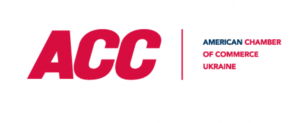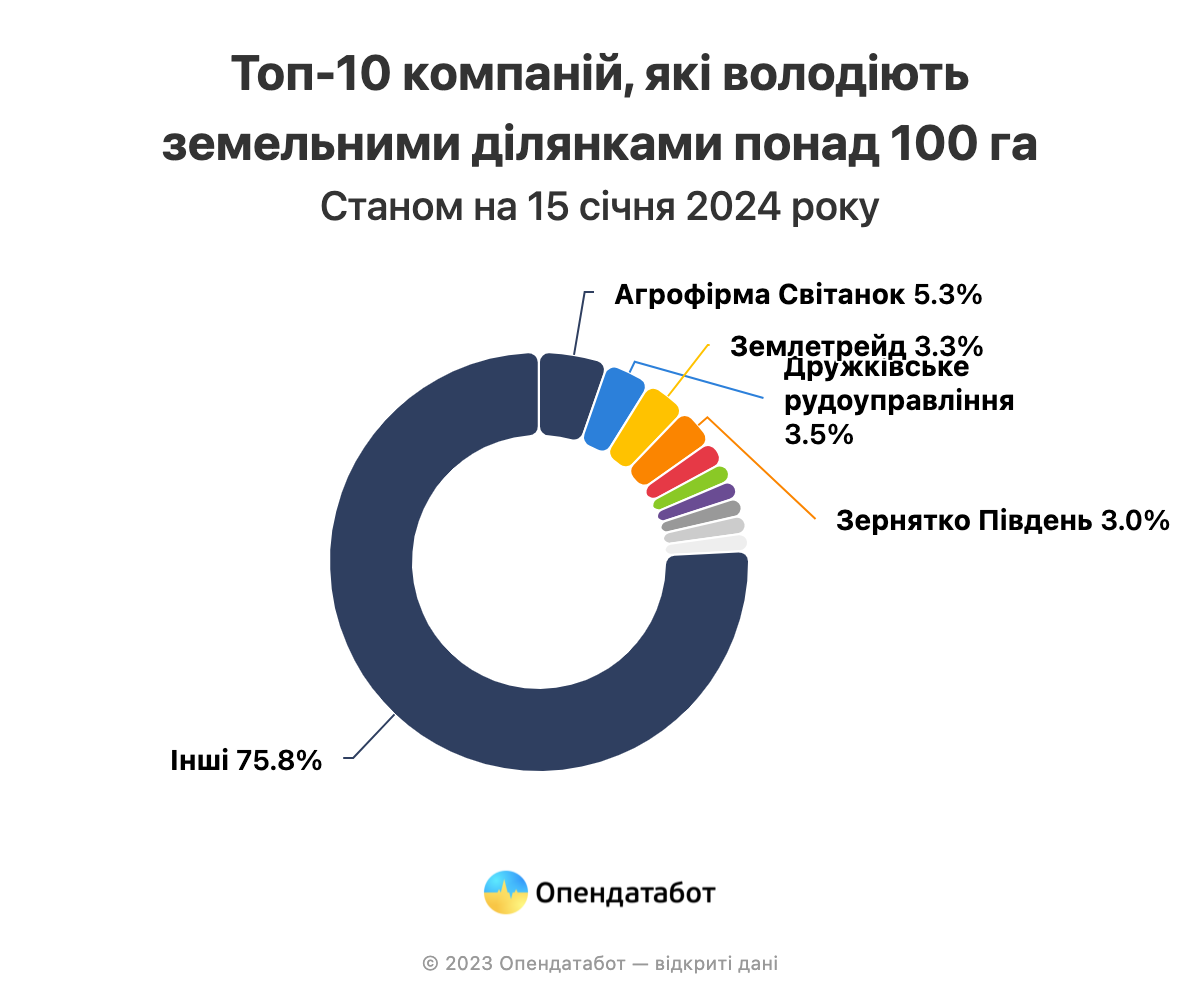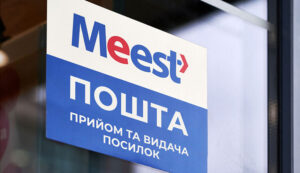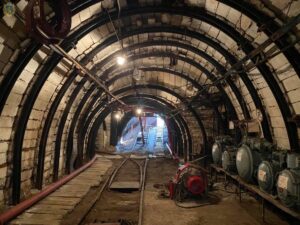
The warehouses of the State Enterprise “Forests of Ukraine” are waiting for the shipment of 100 thousand cubic meters of round timber, and the business has increased its debt to UAH 500 million for the products already delivered, the press service of the state enterprise reported.
The state-owned enterprise reminded that during recent meetings with business, there was a demand to increase harvesting, as there is a shortage of resources.
“But the facts show otherwise. Since the beginning of April, the hotline of the State Enterprise “Forests of Ukraine” has not received a single complaint about the failure to fulfill timber supply contracts due to the fault of foresters (the only case concerns a conflict between entrepreneurs in the Carpathian region, which our employees became hostages). However, the volume of unselected products in the warehouses has increased significantly,” the statement said.
The Forests of Ukraine emphasized that there are a dozen companies among those who do not fulfill their obligations.
Business liability for breach of contract is now minimal. Buyers risk virtually nothing. With significant price fluctuations in the market, it is sometimes easier not to choose products under an open contract and re-enter the auction, the state enterprise explained.
However, due to the accumulation of timber products and reloading of warehouses, storage costs are increasing at the State Enterprise “Forests of Ukraine”. Late payment negatively affects the state of settlements with service providers (primarily for logging). The forced shutdown destabilizes the work of logging companies, and we lose scarce employees who are difficult to replace.
“Our company is working to solve the problem. We are increasing the share of long-term contracts. The situation is definitely normalizing. However, the issue of business responsibility must be taken into account in further discussions on increasing procurement. If we demand it, we must meet it,” the state-owned enterprise emphasized.

Employee health and mental well-being, as well as attracting and retaining top talent, have risen from third to second and from sixth to fourth place in the list of key challenges facing companies over the past six months, according to a survey of its members by the American Chamber of Commerce (AmCham) in Ukraine.
According to the survey, 70% of respondents mentioned health and psychological issues, up from 65% six months ago, and 56% of top employees, up from 43%.
Employee safety and security remains a key challenge, but its “rating” has dropped from 91% to 85%, while Russia’s missile attacks on critical infrastructure and business assets have dropped from 66% to 61%, moving it to third place.
The challenge of economic and consumer recession has also dropped to fifth from fourth, but 54% of respondents mentioned it, compared to 45% six months ago.
While in early fall, the top five expected problems were access to electricity, water and heat supply, and mobile communications with a 44% share, now it is not even among the top 11.
At the same time, logistics and transportation problems have become a concern for 43% of respondents, up from 30% six months ago, regulatory challenges – 39% instead of 23%, and pressure on business from government agencies – 28% instead of 23%.
Among the top three priority steps that businesses would like to see the government take, the top three are real and effective judicial reform (22%), ensuring a clear and transparent booking procedure (22%), and strengthening national security and defense and de-mining of Ukraine (21%).
Less frequently, company representatives chose to ensure predictability and stability of tax legislation (14%), protect supply chains by addressing the situation with border logistics and maritime transportation (7%), ease currency restrictions on repatriation of dividends and/or payment of interest on foreign loans (6%), and expand insurance coverage of political risks (3%).
According to the survey, 86% of companies are fully operational, 12% of the surveyed companies continue to operate partially, and 2% do not operate at all, while 84% were fully operational six months ago.
58% of all respondents had no damage to their property during the two years of Russia’s full-scale invasion of Ukraine, 7% had their assets occupied, and 30% had their companies’ plants/factories/ facilities/warehouses/offices damaged: 75% of them have minor damage, 25% have irreparable damage.
According to the survey, 84% of AmCham member companies in Ukraine have employees in the Armed Forces of Ukraine. In 31% of companies, employees were wounded, 29% were killed in action, and 2% were missing.
“Despite the difficulties, the business community, inspired by brave defenders, continues to work and believe in Ukraine, supporting the economy, paying taxes and creating jobs for Ukrainians. 86% of member companies are fully operational after two years of full-scale war in Russia. Security and judicial reform are the highest priorities for business,” commented AmCham President Andy Hunder.
The survey, conducted from February 12-22, 2024, involved 125 CEOs and top managers of AmCham member companies.

Since January 2024, the land market has been open to legal entities, but it has not undergone significant changes. Mostly, companies that owned a significant number of land plots sell land rather than buy it. In total, since the beginning of the year, companies have sold more than 200 hectares of land, according to the State Land Cadastre.
Since January 2024, the land market has been open to legal entities. From now on, companies have the right to officially purchase up to 10 thousand hectares of land. Despite expectations, businesses have started selling the land they already own rather than buying new land. Companies have already sold 207 hectares of land in the first two weeks of 2024.
Currently, the State Land Cadastre tracks 281 Ukrainian companies, each of which owns land plots of more than 100 hectares.

Which companies in Ukraine own the most land?
The largest amount of land in Ukraine is currently owned by SVITANOK Agricultural Company: more than 5 thousand hectares. The second place is taken by Druzhkivka Ore Mining: 3.3 thousand hectares. ZEMLETRADE closes the top three with 3.1 thousand hectares.
Out of the top 10 companies that own the largest amount of land in the country, only Zemletrade has sold 20 hectares since the land market was opened. Other businesses have not yet conducted any land transactions.
Since the beginning of the year, two companies have already left the SLC’s attention and, accordingly, the top landowners. These businesses have sold off their land bank so that they have less than 100 hectares of land. We are talking about Dolyna and Ekor Garden CTS. As of January 1, 2024, these companies owned 388 and 120 hectares of land, respectively.

Postal and logistics operator Meest Export has been included in the Unified State Register of postal operators, which will allow it to offer services to businesses operating in the field of electronic commerce, Meest China shareholder Vyacheslav Lysenko told Interfax-Ukraine.
The National Commission, which carries out state regulation in the spheres of electronic communications, radio frequency spectrum and provision of postal services, decided to include Meest Export in the state register of postal operators on August 9.
“Meest has been operating in the postal services market for more than 30 years in both c2c and b2c segments. We see high demand from online stores, marketplaces, and most of all from SMEs looking for other markets for their products. Having international experience in e-commerce, we decided to separate export by postal channel into a separate business line of the group,” Lysenko said.
In addition, according to him, the operator will focus on the creation of a new product for small and medium-sized businesses that are interested in bringing the sale of goods to the markets of Europe, the United States, and China.
“The product will include three solutions: easy integration with foreign marketplaces, access to customer base and promotion, fast logistics and customs procedures, as well as fast refunds,” Lysenko specified.
The product to be offered to the market can be called a “concierge service” for businesses exporting goods from Ukraine, he added.
Postal and logistics operator Meest has been operating in the postal services market for more than 30 years. It has its own infrastructure in more than 20 countries and delivers parcels to 95 countries.

Chervonograd Lviv region has developed a project of industrial park to attract investors in the development of new businesses that could replace the coal mines located in the community, to be closed as part of the transformation of coal regions, said Mayor Andriy Zalivskyy.
“We have worked out for potential investors a project of industrial park on 80 hectares plus there is 20 hectares of territories of mines themselves. In addition, we have found more than 110 hectares of land that will not be used in agriculture and can go under the SES location,” he said during a discussion on Ukraine’s transition from coal to clean energy at the conference on reconstruction in London (URC2023), scheduled for June 21-22.
Calling on investors to develop new businesses, he stressed that “the city is open to cooperation and investment, ready to give land on favorable terms, since the industrial park allows it.”
He also called the opening of a factory for the production of solar panels and a factory for the production of heat pumps “a small dream”. At the same time, Zalivsky pointed out that the production of related goods for maintenance of wind energy could also be interesting for investors, because, according to him, “it is consumables, which will be very important”. At the same time, he noted that next year two companies have promised to start building two wind power plants in the community.
“Also on the territory of one of the mines we are planning a plant for processing of solid waste, as there is a project, and it is possible to produce biogas and biomethane,” – said the mayor.
He has underlined, that in case of opening of productions the engineering and technical personnel of mines could be used and “we would retain these people”, and in general, the community has a large resource of labor force.
At the same time, he pointed out that the city is already working on training new personnel in educational institutions.
“Last year we started retraining or training young people in new specialties. We replaced one miner’s specialty with a specialty in solar panel repair. A week later we recruited a whole group. This year we also want to open new specialties, connected with alternative sources”, – told the mayor.
In addition, according to him, the city together with the GIZ Ukraine (German Society for International Cooperation), is working on the implementation of the Innovation Hub.
He stressed that people are already aware of the reality of the closure of mines, but they will be easier to move to another production than to leave their homes, so they need to provide jobs and infrastructure for life and recreation.
“Out of 12 mines in the community, there are six left, employing more than 6.5 thousand people. Of these, 1,500 are at war. Many have died. And we have to take care of their families if these enterprises close. Thank you to the Ministry of Energy and GIZ, who chose us and help us implement this project. We are faced with the task of deciding what to replace the mines with,” the mayor of Chervonograd described the situation.
He noted that in the strategy of the city it is called the industrial heart of the Lviv region, because “we are the only ones who choose industry as the basis for the development of its territory.
As it was reported, Chervonohrad was selected to implement a pilot project to transform coal regions of Ukraine as part of the project “Supporting Structural Change in Coal Regions of Ukraine” funded by the German government and implemented by GIZ Ukraine (German Society for International Cooperation, Deutsche Gesellschaft für Internationale Zusammenarbeit).
Earlier this year, the Ministry of Energy announced that Ukraine would create a fund for the transformation of coal regions with the provision of financial contributions to it for the implementation of projects, in particular on the physical closure of coal mines.

The Cabinet of Ministers has allocated new grants to small businesses totaling 400.5 million UAH, of which about 164.7 million UAH for the creation or development of gardens, berry growing, viticulture and greenhouse farming, the website of the Ministry of Economy reported on Friday.
“Today the government has allocated additional funds for the development of small businesses in agriculture, construction, transport, education, science, etc. This support involves the creation of more than 2 thousand jobs,” the ministry quotes First Deputy Prime Minister – Economy Minister Yulia Sviridenko.
According to the ministry, 92.83 million UAH will be used for horticulture, viticulture and berry growing, 71.9 million UAH – for the creation or development of greenhouses, and 204.4 million UAH of grant funds will be provided for the establishment or development of their own business.
In addition, 62.5 mln UAH of the allocated amount of grant funds will be given to entrepreneurs in agriculture, forestry and fisheries, processing industry, water supply, construction, transport, scientific and technical activities, education, health, art and sports.
As it was reported, eRabota project includes six grant programs aimed at stimulating entrepreneurial activity. These are, in particular, programs of micro grants for starting or developing one’s own business, grants for creating and developing processing enterprises, establishing orchards and vineyards, greenhouse farming, support for IT start-ups and start-ups in IT sphere.
Both current entrepreneurs and people with no business experience can apply for a grant. Applications are accepted through the Diya Portal.